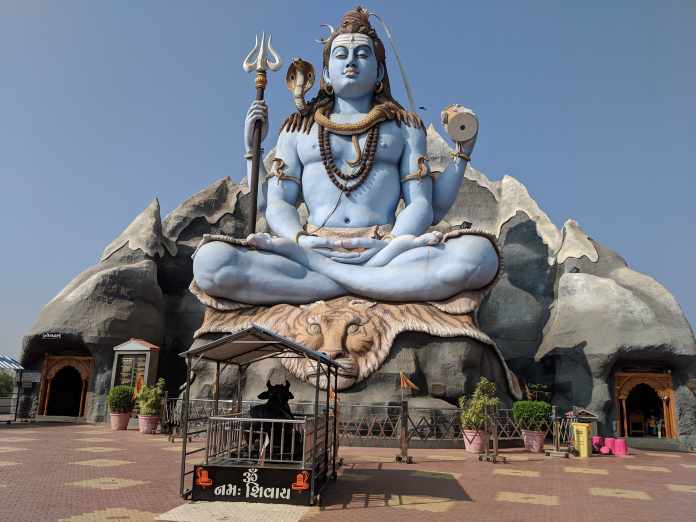As per Hindu scriptures, the universe is created and guarded by three gods, namely, Brahma, the creator; Vishnu, the sustainer, and preserver; and Shiva, the destroyer of negativity. Lord Shiva is one of the “Trimurtis” or the three most prominent Hindu deities of all time. All other gods mentioned in the scriptures are said to be incarnations or forms of the three gods. Let’s see how and why do Hindus worship Lord Shiva.
Countless devotees worship Shiva or Lord Mahadev. Hindu Shiv statues hold immense spiritual value and significance among these devotees. Statues of Shiva performing the Tandava dance and statues of the deity in deep meditation are popular among collectors and devotees. You may research specific aspects and elements that form part of Shiva statues before investing in one.
What Do Shiva Statues Look Like?
You can find Shiva statues that depict his different moods and attributes. However, it is vital to understand Lord Shiva’s physical form before buying a statue or sculpture. Shiva statues typically feature the God holding the “Trishul” or the holy trident, representing the balance between the three “Gunas” in Hinduism.
Shiva also has “Vasuki,” a cobra around his neck, representing his fearlessness and presiding power over negativity. He wears tiger skin attire and holy beads around his neck.
The most notable feature that forms part of Hindu Shiv’s form is the Ganges that flows out of his mane’s top knot, signifying transcended, ever-flowing knowledge and wisdom. Most Shiva statues and paintings show him with the crescent moon as an ornament on his hair.
Lord Shiva also has the “third eye” between his eyebrows. The third eye symbolizes ultimate awareness and wisdom. Shiva is considered an ideal ascetic, a passionate warrior, and the perfect yogi.
Why do Hindus Worship Shiva?
Shiva is worshipped by devotees all over the world. There are several temples, monuments, and pilgrimage sites that are specifically dedicated to this deity. The perusal of Hindu scriptures related to Shiva will help understand that the deity possessed and exhibited unique, powerful qualities and traits.
You may find several stories of Lord Shiva where he expressed deep meditative states and ascetic qualities and others where he exhibited extreme, raw, untamed behavior intense enough to destroy the universe. Hindus believe that Lord Shiva represents the dual nature of the universe and man. He destroys evil and negative forces so new creations can form.
It is also believed that Shiva destroys “Maya” or “illusions.” It is a powerful opposing force that can create obstacles in man’s spiritual journey. Shiva plays the prominent role of destroying the universe to recreate it. The “Shaivites” or Shiva followers consider Shiva the most divine of all gods.
There are several meditative practices, rituals, and spiritual worshipping practices that revolve around Shiva. Additionally, several yogic poses or “asanas” and even yoga variations are related to Lord Shiva.
Hindus worship Shiva for spiritual awakening, peace, positive growth, and wisdom. They believe that worship of the destroyer lord can accelerate their spiritual progress and destroy negative traits and forces within the human mind.
How Do Hindus Worship Shiva?
There are many techniques, mediations, yoga practices, and “sadhanas” or spiritual training to worship Lord Shiva. The worship methods and associated beliefs may vary based on geographic location and customs in the region. Intense worship practices like “Yagnas” and “Yagas” performed in front of the fire are usually done by experienced priests.
Temples and other spaces dedicated to Shiva worship usually contain exquisite Shiva statues that aid the worship. Devotees adorn the statues with specific flowers and leaves. They chant mantras with or without holy rosary beads for worship.
Final Thought
Shiva is a complex Hindu deity with contrasting attributes and features. Statues and sculptures of the Hindu Shiv can aid your spiritual journey. You can place the statues indoors or outdoors for spiritual purposes.



















